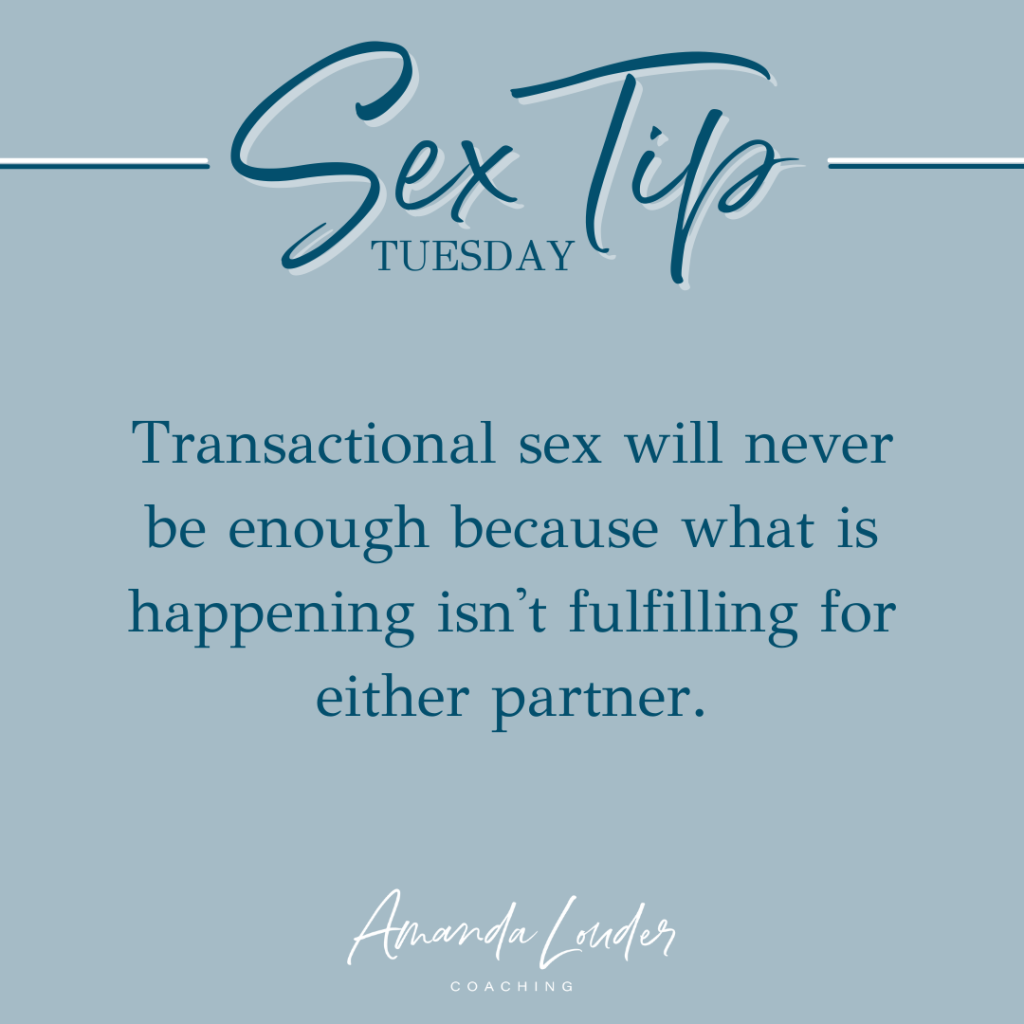
My clients often have transactional relationships with their spouses without even realizing it. In this episode, I want to explain what a transactional marriage is, why we don’t want it and what we want instead. I was recently reminded that people often think of our relationship with our Heavenly Father as transactional when all He wants is a relationship with us. As we pattern our lives after our Heavenly Parents, we can come to realize that the relationship is the most important part of our marriages as well. Let’s talk about transactional vs relational marriages.
Show Notes:
Follow Amanda on Facebook and Instagram.
Join Amanda’s Private Facebook Group.
References for this episode:
Is your Marriage More Transactional or Relational?
In the Image of our Heavenly Parents: A Couple’s Guide to Creating a More Divine Marriage
Show Summary:
A few months ago, a man in my ward gave a talk on our relationship with God and how we often look at that relationship as a transactional relationship. If I do this…God will bless me. If I do this…God will punish me. And when we think this way, we are often thinking that we are earning our value and our worth in God’s eyes. But actually, God does not want a transactional relationship with us. He doesn’t want us doing things or not doing things to earn a reward or blessing or avoid something. He wants us to do things because we love Him and desire a relationship with Him. It’s more about the relationship than anything else.
We have been conditioned to think about relationships in general, and specifically our marriage and sexual relationship as transactional as well. In Episode 157, I talk all about transactional sex and what that does to a relationship.
In a transactional marriage, there tends to be very rigid ways of thinking. There are lots of expectations. In a transactional relationship, the highest priority is getting what YOU want out of the relationship and a great deal of attention is focused on fulfilling each other’s needs. We focus on what we think our spouse SHOULD be doing for us, there is lots of scorekeeping and resentment abounds. There always seems to be a quid pro quo. A tit for tat. It’s full of judgment and blame and is very results oriented. People in a transactional marriage tend to live in scarcity. There never seems to be enough of what they want, no matter how much is given.
I often hear from clients that no matter how much they give, especially when it comes to sex, it never seems to be enough. That is because what is happening is transactional. It will never be enough because what is happening is not actually fulfilling for either partner. A fulfilling relationship comes from not a transactional marriage, but a relational marriage.
So what is a relational marriage? A relational marriage sees the marriage as a deep well with an abundant reservoir of love, attention, trust, and security. And because there is abundance, neither party has to calculate if what they are giving is going to be reciprocated or whether an equal gift will be given. Relational marriages are full of generosity from both parties.
One of the things I work on with my clients is thinking relationally. Thinking about how what they are doing affects not only them, but their spouse and the marriage and sexual relationship as a whole. Can they stop being self-sacrificing and be marriage focused. Can they create a marriage where they make room for both individuals wants and desires, work on loving and accepting their partner as they are, and forgiving past mistakes and wrongs. The more we engage in relational thinking, the more peace and contentment we reap from our marriage.
Here are 4 sign that your marriage is transactional:
- Inequality. In what ways and in what areas is one person in charge and the other subservient? And I’m not talking about areas that you’ve agreed together that one person will take the lead. Of course we all have our strengths and weaknesses and as long as the agreement is made together, that’s fine. But I’m talking about either one person thinks they know better or they are owed for something or one person assumes the other knows more and they owe them something. We talk about this as one partner either putting themselves or being put in a one-up position and the other partner putting themselves or being put in a one-down position. This is never a good thing in a marriage. When we are thinking relationally we think in equality.
Professors Valerie Hudson and Richard Miller wrote the following in the Church’s Ensign magazine: “Social science research supports the prophetic instruction that couples who have an equal partnership have happier relationships, more effective parenting practices, and better-functioning children. Scholars have consistently found that equal partners are more satisfied and have better overall marital quality than couples where one spouse dominates. Equal-partner relationships have less negative interaction and more positive interaction. Moreover, there is evidence that equal partners are more satisfied with the quality of the physical intimacy in their relationship.”
From the book In the Image of our Heavenly Parents: A Couple’s Guide to Creating a More Divine Marriage, Dr. Julie Hanks says: “One of the greatest threats to Latter- day Saint marriages, in particular, is inequality. Because of false traditions, too many LDS couples believe that there should be hierarchy in a marriage instead of an equal partnership (as taught by the Proclamation on the Family).
To combat inequality and create a divine relationship in the image of our Heavenly Parents, a couple’s vision must be mutually-empowering. In many families, one partner (maybe even inadvertently) becomes “in charge” of setting the goals or vision for the marriage and family, and charts the course that the couple will follow. Whether this is prioritizing one partner’s career over the other, one partner’s dreams over the other, or one partner’s needs over the other–a relationship is out of balance when structured as a hierarchy. A partnership marriage exists when both people’s opinions, feelings, needs, desires, and dreams are respected and considered, and decisions are made together. Partnership doesn’t mean sharing every duty or responsibility equally. It means both partners are empowered to express and shape the vision of their relationship.”
- Passive Aggressive. Your marriage is transactional if you or your spouse resort to passive-aggressive behavior to get what you want. A transactional marriage is based on who has the most power and control, which means there are usually a lot of fights and arguments. And this is not healthy conflict. It’s a never-ending cycle of one person trying to get what they want and then the other person asking for something to get their power back.
- Sarcasm. When married couples use sarcasm against each other, it shows how little they trust each other. It’s easy to tell when someone is being sarcastic by listening to their tone of voice, their body language, and observing facial expressions they have. If your spouse is being sarcastic to you, you tend to feel hurt or angry. And that’s what transactional marriages are all about.
- Lack of commitment. Transactional marriages don’t last because people have no interest in making the sacrifices that they need to make. Marriage requires some sacrifice. But if one person is doing all the sacrificing, that doesn’t work either.
So now that you have a good idea of what a transactional relationship looks like, what are signs that your marriage is relational? I am loving the new book In the Image of our Heavenly Parents A Couple’s Guide to Creating a More Divine Marriage. In it they lay out 12 principles that I think we can all work on.
- We co-create a mutually-empowering vision for our partnership.
- We celebrate the strengths in each partner.
- We invest in growth—our own personal growth, the growth of our partner, and our growth as a couple.
- We share spiritual stewardship of our family.
- We collaborate on leadership and decision-making.
- We nurture and provide together.
- We honor all contributions as equally valuable.
- We access and utilize family resources equitably.
- We address problems and resolve conflict respectfully.
- We prioritize fun and friendship in our partnership.
- We create mutual physical pleasure and nurturance.
- We find joy in the divine pattern of our Heavenly Parents.
If you are interested in ordering this amazing book, it’s available from D Street Press and there is a link in the show notes. This is not an affiliate link.





